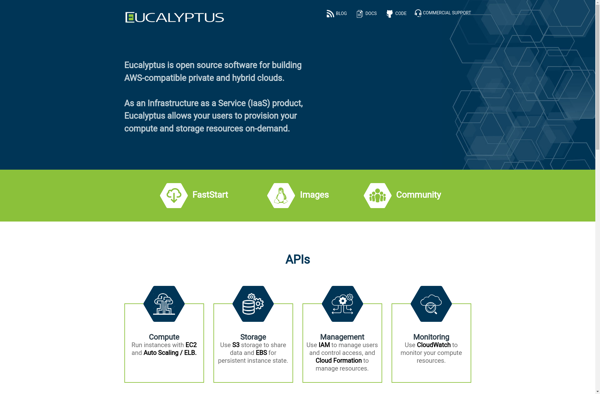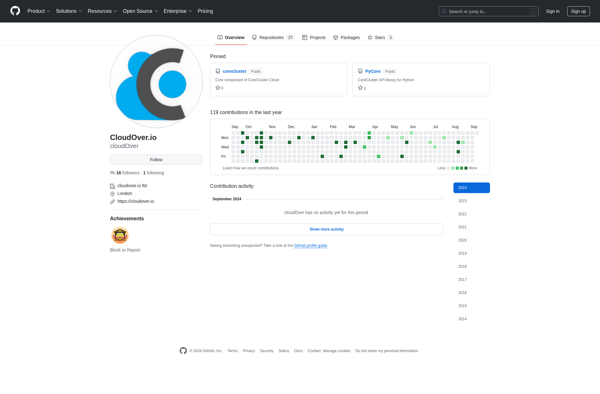Eucalyptus

Eucalyptus: Open-Source Cloud Computing Software
Eucalyptus is open-source cloud computing software for building Amazon Web Services-compatible private and hybrid cloud computing environments, allowing users to deploy their own AWS-compatible infrastructure-as-a-service clouds.
What is Eucalyptus?
Eucalyptus is an open-source cloud computing software platform that allows users to deploy private and hybrid clouds that are compatible with Amazon Web Services (AWS). Developed as a research project at the University of California, Santa Barbara, Eucalyptus enables companies to build AWS-compatible infrastructure-as-a-service (IaaS) clouds on their own data centers and internal servers.
The key benefit of Eucalyptus is providing the flexibility of the public cloud within a private on-premises environment. It offers AWS-compatible services such as Elastic Compute Cloud (EC2) for compute capacity, Simple Storage Service (S3) for storage, Elastic Load Balancing (ELB) for load balancing, and an identity and access management (IAM) service. This allows seamless compatibility with AWS along with the control, security, and cost savings of an on-premises deployment.
Eucalyptus is commonly used for hybrid cloud deployments, allowing workloads to burst into the public AWS cloud when on-premises resources are insufficient to meet demands. The platform handles network transfers and data migration between public and private environments. Eucalyptus offers high scalability and is designed for enterprise use cases.
Eucalyptus Features
Features
- Implements Amazon Web Services (AWS) APIs
- Supports deployment of private and hybrid cloud environments
- Provides Infrastructure-as-a-Service (IaaS) capabilities
- Supports various hypervisors including KVM, Xen, and VMware
- Offers scalable and elastic compute, storage, and networking resources
- Provides user and group management, access control, and metering
Pricing
- Open Source
Pros
Cons
Official Links
Reviews & Ratings
Login to ReviewThe Best Eucalyptus Alternatives
Top Ai Tools & Services and Cloud Computing and other similar apps like Eucalyptus
Here are some alternatives to Eucalyptus:
Suggest an alternative ❐OpenStack

Amazon Elastic Compute Cloud

MicroCloud

CoreCluster

CloudVPS

CloudStack

Synnefo

Hostingwalk
